by Mark Hudson | Aug 10, 2019 | Master Chimney Sweep
When it comes to your chimney, its services, and repairs, it’s important to schedule with a certified professional. Hiring an amateur, general contractor, or handyman may result in improper installations. When products are installed improperly or repairs are made incorrectly or haphazardly, it can result in increased fire risk and a drop in efficiency. An inefficient fireplace and chimney system is not only dangerous but can also cost you money!
CSIA Certified Chimney Sweeps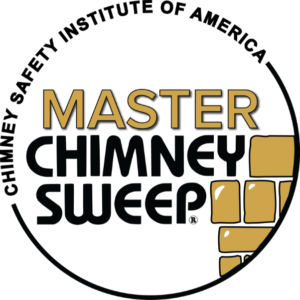
A CSIA Certified Chimney Sweep is a professional who has gone through hours of classroom and field training, rigorous testing and lives by a code of ethics. Every three years the CSIA Certified Chimney Sweep (CCS) must recertify through examination or continuing education courses. Sweeps strive to further the CSIA mission of eliminating residential fires by educating the public and professionals.
Hire a Master Sweep for the Best
Those chimney sweeps who have gone above and beyond are able to apply for Master Sweep status. These chimney sweeps do everything in their power to stay at the very front of the chimney and venting industry. Applicants must be an active CSIA Certified Chimney Sweep who has held this certification for a minimum of nine consecutive years or 18 total years. Those that are interested in becoming a Master Sweep must complete the following courses in order to obtain the credential:
- Chimney Physics (online or 2-day course)
- Inspection and Report Writing (2-day course) or Diagnosis and Documentation
- CSIA Masonry Repair for Chimney Professionals
- CSIA Lining Masonry Chimneys with Stainless Steel
- CSIA Rope/Roof Access
- CSIA Advanced Masonry Repair
- NFI Core Review + NFI Specialty Review
- Advanced Inspection and Documentation
- Master Chimney Sweep Comprehensive Burn Wise Course
- 12 hours of CSIA online training (not to include reviews, lining masonry chimneys, or chimney physics online)
These courses are filled with valuable knowledge and information related to an ever-changing industry. Master Sweeps are expected to complete them in order to stay at the front of the industry in service, safety, technology, and standards.
NFI-Certified Master Sweeps
Not only does a Master Sweep need to be CSIA Certified, but also have an active NFI Certification through one of two CSIA classes. This requirement may also be fulfilled by having held an NFI certification for a minimum of six years, a current F.I.R.E. Certified Inspector, OR an Associate degree in Fire Science from an accredited college.
Once all requirements are completed, an application is submitted, and the one-time fee is paid, the process can begin. The Master committee will make a decision within 30 days, and the sweep can begin working under this new and prestigious title. If you have hired a Master Sweep with current status, you can rest assured they are current on all certification requirements, which means they have the classroom training to get any job done and done well. The Master Sweep signature is trusted by professionals across the industry and beyond. Hire a Master Sweep and your reports, repairs, and diagnostics will be appropriate for your attorneys, realtors, and more.
Sometimes, especially in regions that endure heavy rains and tropical storms, a chimney sweep isn’t enough. Sometimes your chimney needs a Master Sweep.
Schedule with Jacksonville’s trusted Master Sweep today by calling 904-282-4159 or contact us online.
by Mark Hudson | Jul 31, 2019 | Chimney Liner
The chimney liner is vitally important to the proper operation of a chimney system. Like human skin, the liner is one of the largest parts of the whole system and operates as a barrier that keeps the system working safely and properly. The liner keeps the heat of the fire in its place and prevents the gases and heat from traveling through the masonry and affecting the rest of the home as it rises out of the chimney. When there is damage to the liner, it can put your family and home at risk. The problem is, this type of damage is hidden from sight and may not be recognized right away. When liner damage is reported by a professional, it’s important to schedule a repair right away. When your chimney expert is Hudson Chimney of Jacksonville, Florida, you can count on a repair using HeatShield chimney products.
HeatShield Cerfractory Flue Sealant
No matter how serious your liner damage, we can fix it using HeatShield Cerfractry Flue Sealant. This cerfractory technology combines the strength of ceramic with the heat resistance of refractory  material, allowing your chimney professional to repair and restore your liner with an easy application of a specially-formulated hybrid product.
material, allowing your chimney professional to repair and restore your liner with an easy application of a specially-formulated hybrid product.
- The Test of Time – HeatShield was developed over 20 years ago and has withstood the test of time in the industry as well as actual factory-testing before the products hit the market. In fact, HeatShield has been tested against temperatures over 2900 °F. When you choose HeatShield you get a product that is safe for all fuel types, long lasting like a stainless liner, and one that restores the integrity of your chimney’s flue completely.
- Independent Certified Installers – HeatShield installers are certified and experienced using this product for your liner repairs and restorations. When you hire a professional HeatShield installer, he or she will be factory trained and will use specially designed tools to expertly repair your liner using the only cerfractory sealant on the market.
- Economical and Eco-Friendly – Made of recycled and naturally occurring materials, HeatShield is a cheaper alternative to replacing your entire liner. With this product, you can have the specific damage repaired only without damaging the rest of the liner.
- Limited Lifetime Warranty – No matter what your chimney needs, if we use HeatShield to repair or restore it, the product is covered by a limited lifetime warranty.
Joint Repair and Resurfacing with HeatShield
One of the most damaging things that can happen to your liner is that the joints can become riddled with gaps and cracks. When this happens you may find pieces of mortar or clay tile pieces in the fireplace. No matter how extensive the damage, we can restore the joints with HeatShield by placing the product in a custom applicator placed beneath each affected area. As we pull the custom foam blade upward, the product fills cracks and gaps. If the damage is extensive, this process can be used to resurface the entire flue from the bottom to the top, restoring the liner completely.
Using HeatShield products we can clean the flue, repair, resurface, and even reline the flue. Not sure what type of repair your liner needs this summer? Let us take a look. Call Hudson Chimney at 904-282-4159 and we’ll get your flue fixed before fall.
by Mark Hudson | Jul 10, 2019 | Chimney Leaks
Most of the U.S. is getting more rain for this time of year than ever before. In much of the Midwest, farmers aren’t able to seed their cropland, and still, the rain just keeps on coming. In Florida, we are four weeks into Hurricane Season, and there are already five hurricanes projected to hit us this season.
The rain and wind that come with these storms mean we need to protect our chimneys from water damage. It also means you should schedule preventative services with a chimney professional or schedule repairs for damages that have already occurred. At Hudson Chimney, we are the professionals with the knowledge and experience to take care of all your leaky chimney needs!
The Problem with Chimney Leaks
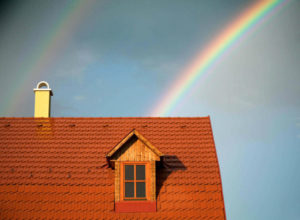 Water is the worst thing that can happen to a masonry chimney. The reason water can cause so much damage is because of the materials which make up the masonry. The masonry is porous in nature, and it is made of various materials that are highly affected by moisture. A chimney system may be well made, but even a small amount of water can destroy it from the inside out.
Water is the worst thing that can happen to a masonry chimney. The reason water can cause so much damage is because of the materials which make up the masonry. The masonry is porous in nature, and it is made of various materials that are highly affected by moisture. A chimney system may be well made, but even a small amount of water can destroy it from the inside out.
When water is allowed into the chimney system, either by the top (at the cap or crown) or through the sides (flashing and masonry), you can guess there is likely damage. Since most of the chimney system is not readily visible, the leak may take time to notice and damage might occur before anything can be done about it. The best way to prevent water damage is to prevent chimney leaks, and our team is here to help.
Signs of a Chimney Leak
Leaks often go unnoticed because much of the leak occurs behind the scenes, and homeowners aren’t sure what to look. In order to catch a leak early, it’s important to know what to look for, and here are some of the signs of a leaky chimney.
- Stains on masonry interior and exterior
- Dripping sounds and visible water in the chimney
- Odors of mildew and mold
- A high amount of moisture in the home
- Cracks and deterioration in masonry
- Leaks in other parts of the home
When you experience a leak, it can be nerve-racking. When you call in the right professional to deal with it, it won’t be a big deal. Many homeowners tend to call a general contractor for leaks, assuming it’s a roof or plumbing problem. The best option for homeowners with chimneys, however, is to call the chimney professionals. We will not only assess the leak, but we will also correct it at the source. We install new caps and flashing, repair crowns and masonry, and we also waterproof chimneys for good measure. Our waterproofing services will protect the masonry from water intrusion for ten years!
Are you a homeowner in Northeast Florida, and you aren’t sure if your chimney system is properly protected against water leaks? Call Hudson Chimney today at 904-282-4159. Our team will take care of your chimney!
by Mark Hudson | Jun 26, 2019 | Chimney Smells
There is a host of issues that a homeowner may have with their chimney throughout winter. When the fireplace is in use every day, hazards may arise anytime. However, during the off-season, chimney problems may not present immediate danger and are subtle, but they can still be quite a bother.
Perhaps you’re a homeowner in the Jacksonville, Florida area and the summer heat and humidity are affecting your chimney. You may not even realize it until you notice disgusting smells coming from your fireplace. There are lots of different kinds of odors, and each odor could mean something is wrong with your chimney. Let Hudson Chimney troubleshoot and figure out the problem with your chimney odor today!
Chimney Odors and Chimney Problems
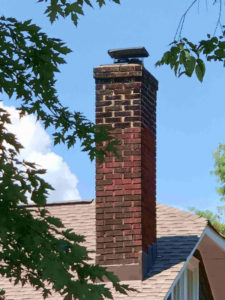 The first thing you might notice during the off-season won’t identify itself as a chimney problem unless you know what to look for. You may be sitting in your living room, relaxing with coffee and a friend, and then you suddenly smell the overwhelming odor of barbecue. It is strong, and now you can’t focus on anything else. This is a common complaint we get from customers as they realize that the odor is coming from their fireplace. The fireplace worked fine all year. They didn’t have any problems with it. What’s the problem? The problem, according to the professionals, depends on the odor.
The first thing you might notice during the off-season won’t identify itself as a chimney problem unless you know what to look for. You may be sitting in your living room, relaxing with coffee and a friend, and then you suddenly smell the overwhelming odor of barbecue. It is strong, and now you can’t focus on anything else. This is a common complaint we get from customers as they realize that the odor is coming from their fireplace. The fireplace worked fine all year. They didn’t have any problems with it. What’s the problem? The problem, according to the professionals, depends on the odor.
Barbecue Grill/Smoker Odor
If your fireplace smells like a dirty barbecue grill inside your living room, it is time to call the professionals. This odor is a direct result of a dirty chimney system. The soot and creosote that collects in and coats the system all winter long are beginning to stink due to the air pressure outside forcing the odors indoors. The smell also worsens when humidity rises, water vapors mingling with the soot and creosote. This combination is especially corrosive to the liner if it isn’t cleaned out of the system or the chimney is closed from the outside.
Mold/Mildew Odor
You might be smelling odors that indicate mold or mildew. If you have checked all the cabinets under the sink, looked over ceilings and walls for leaks, and caught up on laundry baskets, it’s time to look at the chimney. Water in the chimney system, especially water that has been present long enough for bacteria growth, will begin to emit these odors. This is a sign of a leak that is serious and should be fixed right away before more damage occurs.
Foul/Decomposition Odor
This type of odor is easy to identify, but homeowners never want to believe it. When you smell the foul odor of decomposition, you might assume you have a dead mouse under a bed or inside a wall. The chimney can emit this odor too. However, when animals come into the system and die when organic material begins to decompose such as limbs, wood, leaves, etc. and the odor is the same. When you smell this foul odor from the fireplace, it needs to be cleaned out immediately.
Solution
Schedule services with Hudson chimney so that your chimney smells fresh and is ready for burning season in the fall. We can clean the system from top to bottom, check for chimney leaks, and even waterproof the masonry to prevent future leaks.
Don’t settle for a stinky house or a dirty chimney. Call Hudson Chimney today at 904-282-4159 and we’ll make sure your chimney is clean and fresh in no time!
by Mark Hudson | Jun 15, 2019 | Chimney Cap
The biggest enemy of your chimney system whether it’s spring, summer, fall, or winter is water. Precipitation can wreak havoc on an uncapped chimney, but rainwater is not the only reason to cap your chimney. At Hudson Chimney we know that every chimney flue needs a cap and here are the seven biggest reasons why.
1. Caps Keep Water Out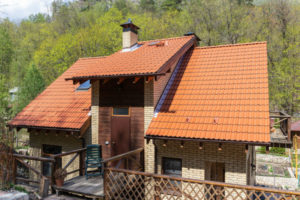
Chimney caps are designed to keep water out of the chimney flue, preventing serious water damage and danger. No matter what brand or style you buy, it should have a metal roof on it which prevents water from falling into the chimney. The water runs off the chimney cap and onto the crown below. From the crown, water drips down to the flashing and roof.
2. Caps Keep Animals Out
Especially during spring, but also year-round, chimney caps keep animals out of the chimney system. Any critter that can make it onto the roof can make it into the chimney opening if it isn’t properly capped. If they climb back out on their own, they leave behind nesting materials, droppings, and other debris that need to be removed. Some of these animals can obstruct the chimney flue, others suffocate and die inside the system, and some, like the chimney swift, are protected under federal law and cannot even be removed from the chimney system or the home. The best way to prevent animals from gaining access to the chimney is to keep it capped.
3. Caps Keep Debris Out
During stormy periods, winds and rain may carry debris into your chimney flue, leading to obstruction, fire hazards, and even odors as these materials decompose over time.
4. Caps Keep Wind Out
In our area of Jacksonville, Florida, especially this time of year, we experience tropical weather producing high winds. At Hudson Chimney we sell and install special models of chimney caps which deflect wind to prevent damage and stop drafts from entering your chimney.
5. Caps Keep Sparks In
While your fireplace is in use, your chimney vents heat, gases, and sparks. Some of these sparks may be ignited and carried up through the flue and out while still ignited. These sparks can ignite fires on your roof and even on your yard near your house. The metal mesh on your chimney cap stops these sparks and puts them directly back into your flue and down into your fireplace.
6. Caps Protect the Liner
You chimney cap doesn’t just prevent damage to your chimney system caused by water, weather, and animals. The cap will prolong the life of your chimney liner overall by protecting it completely. Whether your liner is a clay tile, stainless steel, or another type of liner, the cap will protect it year-round.
7. Caps Can Double as Dampers
If you choose a top mount damper, it can double as a cap, closing the system from the top-down with an airtight seal. This type of cap/damper mechanism saves our customers money, provides 100 percent protection, and is long-lasting.
If your chimney flue doesn’t have a chimney cap, your chimney is at risk. Call the professionals at Hudson Chimney today at 904-282-4159. We install caps, custom caps, and energy top mount dampers.

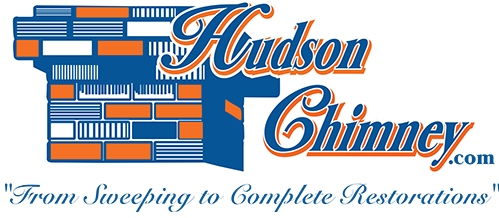

 Water is the worst thing that can happen to a masonry chimney. The reason
Water is the worst thing that can happen to a masonry chimney. The reason  The first thing you might notice during the off-season won’t identify itself as a chimney problem unless you know what to look for. You may be sitting in your living room, relaxing with coffee and a friend, and then you suddenly smell the overwhelming odor of barbecue. It is strong, and now you can’t focus on anything else. This is a common complaint we get from customers as they realize that the odor is coming from their fireplace. The fireplace worked fine all year. They didn’t have any problems with it. What’s the problem? The problem, according to the professionals, depends on the odor.
The first thing you might notice during the off-season won’t identify itself as a chimney problem unless you know what to look for. You may be sitting in your living room, relaxing with coffee and a friend, and then you suddenly smell the overwhelming odor of barbecue. It is strong, and now you can’t focus on anything else. This is a common complaint we get from customers as they realize that the odor is coming from their fireplace. The fireplace worked fine all year. They didn’t have any problems with it. What’s the problem? The problem, according to the professionals, depends on the odor.